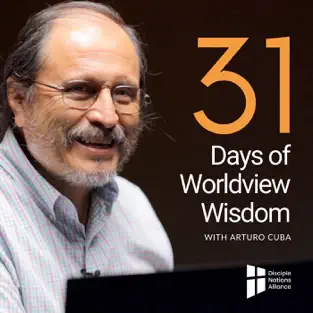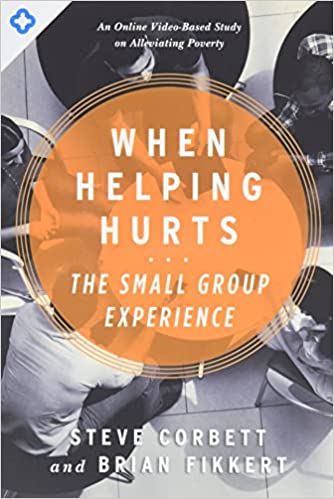At a Glance
Why are poor countries poor, and are toxic worldviews a contributing factor to poverty? In this episode, Tim Andrews answers these questions by examining why poverty-stricken communities in Africa have been unable to make progress despite massive development efforts. Tim Andrews labored for 20 years to bring sustainable development to a destitute community in rural Tanzania. But, after decades of pouring money, planning, and technology into solving the community’s problems, the cycle of dependancy and hopelessness only deepened. No amount of modern methodology or funding could displace the deep-seated animistic and fatalistic worldview of the culture that held the villagers paralyzed in a mentality of poverty. When Tim confronted the underlying animistic superstitions of the people and taught a biblical worldview instead, the change was night and day. Tim Andrew’s story shows the power of seeing reality through the lens of God’s word, and how an applied biblical worldview can produce lasting hope and change in poverty-stricken communities.
This is the second part of a two-part interview with Tim and Terry Andrews.
What You'll Hear
Chapter 1: The Impact of Worldview on Life (2:42)
- When Tim Andrews started development and relief work in rural Tanzania, he came thinking that the only thing needed to solve poverty is a plan, money, and technology.
- Only after 20 years of fruitless labor did Tim discover it was not the poverty itself, but the mindset of poverty inherited from a fatalistic, animistic worldview that was the problem.
- Applying a biblical worldview created over-night change in a place where decades of relief work had little to no effect.
- If your worldview does not align with reality, sustainable change for the better is often impossible.
- This is why aid to developing communities often fails; they are given tools to succeed but don’t have the worldview to actually “own” them or use them successfully.
- Even though much of the West is no longer Christian, it benefits from Christianity’s influence at foundational levels for over a thousand years, making it possible for high levels of trust and success, even in basic areas like business agreements. It is hard for us to comprehend just how embedded animism and fatalistic worldviews are in Africa.
- Tim shared a story of going to a village that was “graduating” after a 20-year support project from World Vision, only for the village chief to harshly criticize them for not staying longer. This among other events caused Tim and Terry to start considering the application of a biblical worldview.
- He discovered that when biblical worldview teaching was taking root in rural Africa, change and development happened rapidly.
Chapter 2: Mentality of Poverty in the Tanzania Rice Patties (31:40)
- Tim visited Tanzania in an area where they grew rice and started talking to some of the people who lived there.
- Even though they lived in an incredibly fertile area, they were in debt and living in poverty because rats and insects would eat 40% of the harvest and then middlemen would come and massively undercut the prices.
- Tim decided to intensively teach biblical worldview with small groups of people, addressing issues of identity and work, and then later came in with ideas of improved technology, better seeds, and how they could collectively bargain with the middlemen.
- The next harvest, these 9,000 farmers more than doubled their income. Much of that difference came from their own creative initiatives, rather than something directed by World Vision.
- World Vision has seen these results with enough consistency, that they have decided to heavily invest in teaching Biblical Worldview, allocating $100 million dollars for it over the next 8 years.
- Some of the people who helped influence and build these Biblical Worldview Curriculums were trained by Disciple Nations Alliance.
Chapter 3: How Biblical Worldview Changed Terry and Tim (47:39)
- While Terry believed in God and knew he could change people, she didn’t expect God to so radically change not just a person’s soul, but things like how well a person did in school or in the workforce, or their family situation.
- She had a salvation-mindset, where God was only interested in changing someone’s soul from being dead to alive in him. While this is certainly essential as the basis for all other change, God did not come only to save us, but to do much more.
- Terry trained youth to teach an “empowered worldview” biblical worldview curriculum for children. The youth were also warmly received when they had an opportunity to teach the material to their pastors.
- After realizing the importance and impact of worldviews, Tim has become very attentive to people’s mindset and values, realizing it is what drives their behavior and determines their success.
Chapter 4: Root To Fruit (59:13)
- Terry and Tim now work with Root To Fruit, which brings biblical worldview to corporate contexts, engaging at the executive level. They help businesses in Africa recognize the blessing and opportunity of work, and understand the redemptive possibilities of creating shared wealth.
Using the link above, you can read the transcript, listen along, and adjust the speed of the podcast while you listen.
What I was observing was a mindset poverty. And it expressed itself as a never-ending sense of worthlessness and powerlessness and fear and shame.
-Tim Andrews (17:48)

Go Deeper
Root To Fruit
Root-to-Fruit’s mission is based on a conviction that God’s truth has the power to transform individuals, organizations, communities and even nations. Organizations are transformed when its leaders and staff confront cultural lies, and instead embody and proclaim God’s biblical truths. Helping organizations to do this is the beating heart of our mission. Understanding a biblical worldview creates space for people to assess their own worldview in contrast to God’s truth. A biblical worldview begins with two foundational assumptions:
- Jesus is King over all, and
- His Word is truth.
When an organization disciples a culture built on a foundation of these twin truths, its leaders and staff begin to work in harmony, with a common language to flourish.
A biblically empowered worldview reconciles broken relationships with God, self, others and the environment. Out of a renewed sense of identity in God’s image, the leaders and staff improve their spiritual and physical livelihoods through individual responsibility, trust, respect and hard work. Leaders and staff together begin to define the desired transformation, own it and are accountable for the outcome.
Discipling Nations: The Power of Truth to Transform Cultures
Have Christians underestimated the power of God’s truth to transform entire societies? In Discipling Nations, Darrow Miller builds a powerful and convincing thesis that God’s truth not only breaks the spiritual bonds of sin and death but can free whole societies from deception and poverty. Completely revised and updated for the third edition, Discipling Nations will challenge, reenergize, and equip Christians everywhere who labor to see His kingdom come, His will be done.When Helping Hurts
Good intentions are not enough.
When Helping Hurts offers a different framework for thinking about poverty and its alleviation. Rather than simply defining it as a lack of material things, the book addresses the roots of the issue: broken relationships with God, self, others, and the rest of creation. Online videos included.
Join together as a class or small group to explore how to help the poor without hurting them.
The Small Group Experience, an ideal training resource for small groups, Sunday school classes, and parachurch and nonprofit ministries, utilizes free online video lessons to unpack the basic principles of poverty alleviation in an accessible way. Filmed in the U.S. and abroad, each of the six lessons includes discussion questions, application exercises, and materials for further learning. Join the many ministries and churches that are already implementing these ideas, transforming their culture of poverty alleviation, and moving toward helping the poor without hurting them.

31 Days of Worldview Wisdom with Arturo Cuba
Are you weary of hearing about Covid-19, social unrest, and political division? Need some refreshment?
Take a break and dive into 31 days of Worldview Wisdom, a Disciple Nations Alliance podcast with Arturo Cuba. Episodes are shorter, making it accessible for many, with an average length of about 15 minutes.
From his teaching experience with rural pastors and farmers in Latin America, Arturo brings encouraging insight for every person in every culture. Arturo Cuba is one of the Disciple Nation Alliance’s earliest and most influential trainers. He has creatively discipled people in the biblical worldview in Latin America for over 20 years. In this audio series, he shares his highly practical teaching and examples of transformation.
The Kingdomizer Training Program
More than a million people have now been trained in 115 countries.
Our Kingdomizer Training Program was first designed for missionaries, indigenous pastors, and workers in relief and development. As these individuals explored our basic biblical worldview teaching, they began to experience personal transformation that would ripple into their families, churches, communities, and even nations.
If you have a heart for the poor and a love for the Bible, we invite you to explore how you can be part of God’s transforming work in the world, and learn why thinking about a biblical worldview can make all the difference in people flourishing. Get started with our completely free Kingdomizer Training Program today!
Quotes
A Mentality of Poverty
And so what I was observing was a mindset poverty. And it expressed itself as a never-ending sense of worthlessness and powerlessness and fear and shame. And when you introduce technology into that sort of a mindset, there is no agency, there’s no creativity, there’s no sense of ownership that can take advantage of it. -Tim Andrews (17:48)
The Power of the Biblical Worldview
Christianity, when it came to Africa, it came as a message of salvation. You can be saved through faith in Jesus Christ and some basic discipleship, which is what he was doing, read the Bible, attend church services. But then what he realized is that it didn’t come as a worldview that provided answers to these deep questions of reality and what does it mean to be a human being. It was an overlay on to an essentially an animistic worldview. -Scott Allen (22:21)
How a Biblical Worldview Promotes Community Flourishing
And so the journey was to help people understand that when you are created in the image of God. That’s a powerful concept, if you’ve never heard it and never understood that a God that loves you that thought you up from before the foundation of the Earth, that wants you in the family and the community, and the country that you’re in right now, because there is a purpose for you. And he put all of the creativity and the gifts and the skills and the ability on the inside of you to create things, to create wealth, to be able to provide for your children, to be a good neighbor, to be able to build community. -Tim Andrews (25:37)






